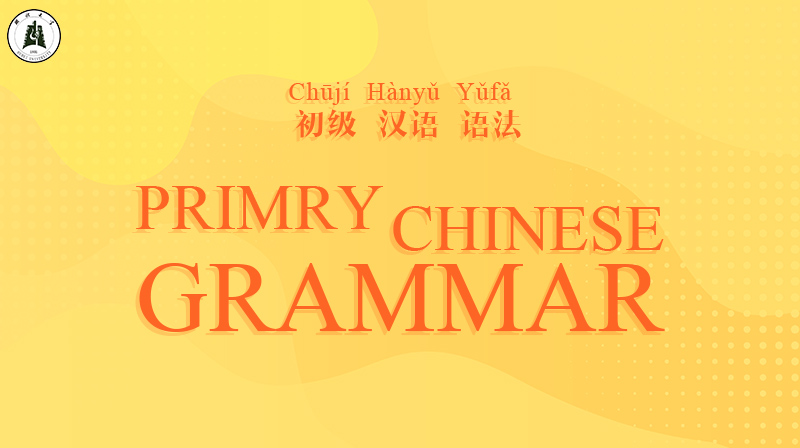第六章单元测试
- 关于动词“离”,下面哪种用法不对?( )
Which of the following Chinese sentences is grammatically incorrect due to the wrong use of the verb “离”? ( ) - 关于词组“感兴趣”,下面哪个中文句子不对?( )
Which of the following Chinese sentences is grammatically incorrect due to the wrong use of the phrase “感兴趣”? ( ) - 下面哪个句子中的“都……了”不表示“已经”?( )
In which of the following Chinese sentences, the structure “都……了” does not mean “already”? ( ) 下面哪些句式可以用来表达兴趣爱好?( )
Which of the following sentence patterns can be used to express one’s hobbies or interests? ( )关于“因为……,所以……”,下面哪些句子是对的?( )
Which of the following Chinese sentences are correct about the structure “因为…, 所以…”,indicating that “We didn’t go to play football yesterday because it rained”? ( )- “It’s raining harder and harder.” 用汉语可以表达为 “雨越下越非常大”。
“It’s raining harder and harder” would be expressed in Chinese as “雨越下越非常大”.( ) - “还是”可以用在疑问句中,也可以用在陈述句中。当说话者在陈述句中不确定究竟是哪种情况时,要用“还是”,而不是“或者”。例如,小丽还没想好周末去爬山还是去看电影。
“还是(or)” is not only used in a interrogative sentence, it can also be used in a declarative sentence. When the speaker doesn't know which one or which situation it is in a declarative sentence, “还是(or)” is used, rather than “或者(or)”. For example: 小丽还没想好周末去爬山还是去看电影。(Xiao Li hasn't decided whether to go hiking or to see a movie this weekend.) ( ) - 指示代词“这么”和“那么”都表示“so”,在句中的功能和使用位置几乎相同,它们的区别是“这么”指近指,“那么”指远指,有时候也可互换。
The demonstrative pronouns “这么” and “那么” both mean “so”, and their function and position in a sentence are basically the same. The difference between these two words is that “这么” is used to refer to something that is closer to the speaker in distance or time, while “那么” is used to refer to something that is further to the speaker. If we cannot tell it is far or close, either one will work. ( ) - “除了春节、中秋节外,啤酒节也是这里很重要的一个节日。”这个句子中的“也”,不能换成“还”。
The word “也” in the sentence“除了春节、中秋节外,啤酒节也是这里很重要的一个节日。(Besides the Spring Festival and Mid-Autumn Festival, the Oktoberfest is also an important festival here.)”cannot be replaced with “还”.( ) - “那个地方的西瓜又贵又好吃。”这个句子中“又……又”的用法错误。
The structure “又…又” is used incorrectly in the sentence of “那个地方的西瓜又贵又好吃”. ( )
A:学校离机场有二十多公里。The school is more than 20 kilometers from the airport. B:离我的生日还有一个多星期呢。My birthday is more than one week later. C:我家离公司很远,坐公共汽车要一个多小时呢。My home is far from the company. It takes more than one hour by bus. D:中国和泰国离很近。China is very close to Thailand.
答案:中国和泰国离很近。China is very close to Thailand.
A:我都很感兴趣跑步和游泳。I’m very interested in both running and swimming. B:你对什么音乐感兴趣?What kind of music are you interested in? C:我对这种人一点儿都不感兴趣。I’m not at all interested in this kind of person. D:他们都对中国电影非常感兴趣。They are very interested in Chinese movies.
A:他们班的同学都去操场跑步了。All the students in his class went running on the playground. B:都到机场了,你怎么突然又不想去旅游了呢?We’re at the airport! Why don’t you want to travel all of a sudden? C:你都十岁了,可以自己洗衣服了。You are ten years old, so you can wash your clothes by yourself. D:都八点了,快点儿起床吧。It’s eight o’clock. Get up quickly.
A:爱好是…… B:对……感兴趣 C:爱好做…… D:喜欢做……
A:因为昨天下雨,所以我们都没去踢足球。 B:昨天下雨,所以我们都没有去踢足球。 C:我们都没去踢足球,因为昨天下雨。 D:因为昨天下雨,我们都没去踢足球。
A:对 B:错
A:对 B:错
A:对 B:错
A:错 B:对
A:对 B:错
温馨提示支付 ¥3.00 元后可查看付费内容,请先翻页预览!
